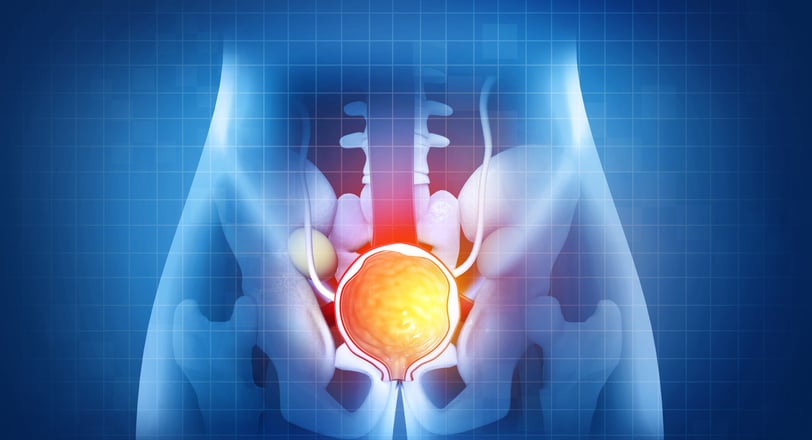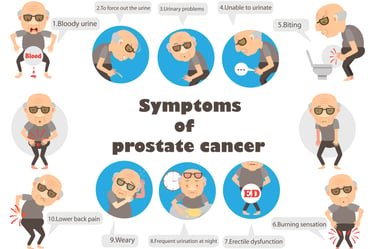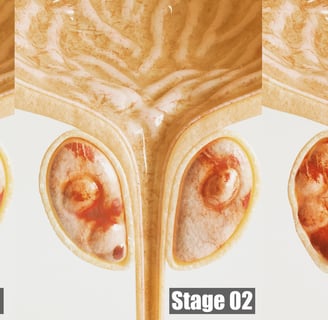Navigating Prostate Cancer: Risks, Detection, and Management
PROSTATE


Understanding Prostate Cancer: A Simplified Guide
What is Prostate Cancer? Prostate cancer develops in the prostate gland, which is responsible for producing seminal fluid in men. It’s a common cancer type, with some forms growing slowly and remaining within the gland, posing little threat. Others, however, are more aggressive and can spread rapidly.
Early Detection and Treatment The earlier prostate cancer is found, confined to the prostate gland, the better the chances for successful treatment.
Symptoms to Watch For In its early stages, prostate cancer may not cause any symptoms. More advanced cases can lead to:
Difficulty urinating
Weaker urine flow
Blood in urine or semen
Bone pain
Unintentional weight loss
Erectile dysfunction
When to Consult a Doctor
If you notice persistent symptoms that concern you, it’s important to see a doctor.
Causes of Prostate Cancer Prostate cancer starts when prostate cells’ DNA changes, causing them to grow and divide more than they should. These abnormal cells can form tumors and potentially spread to other body parts.
Risk Factors Your risk of developing prostate cancer can increase due to:
Age, particularly after 50
Race, with Black individuals having a higher risk
Family history, especially if relatives have had prostate cancer or certain breast cancer genes
Obesity, which may lead to a more aggressive form of the cancer
Potential Complications Prostate cancer can lead to:
Spread of cancer to other organs
Urinary incontinence, with various treatment options available
Erectile dysfunction, treatable through medication, devices, or surgery
Prostate Cancer Prevention: Strategies for a Healthier Life
Healthy Eating Habits: Incorporating a diet rich in fruits, vegetables, and whole grains can boost your health. While the direct link between diet and prostate cancer prevention isn’t definitively proven, a nutritious diet enhances overall well-being.
Choosing Nutrition Over Supplements: Opt for natural food sources high in vitamins and minerals rather than relying on supplements, as there’s no concrete evidence that supplements reduce prostate cancer risk.
Regular Physical Activity: Engage in regular exercise to benefit your general health, control weight, and uplift your mood. Start gradually and increase your activity level over time.
Weight Management: If you’re at a healthy weight, maintain it through diet and exercise. For weight loss, combine increased physical activity with a calorie-conscious diet, seeking medical guidance if necessary.
Consultation for High-Risk Individuals: Discuss with your doctor if you have a heightened risk of prostate cancer. Medications may lower the risk, but they also carry a potential risk for more serious prostate cancer types. It’s essential to have a conversation with your healthcare provider about medicine risks and benefits.




